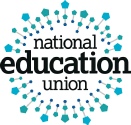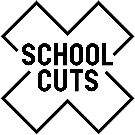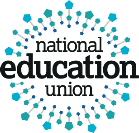









Keeping yourself safe: what you can do now
Keeping safe on site
- Only key worker children and vulnerable children, whose parents cannot make alternative arrangements, and staff on rota duty can come in to school.
- No other students to be allowed on site.
- No other visitors or contractors to come on site, unless absolutely necessary or in emergencies.
Cleaning arrangements
- More thorough cleaning to be introduced. The virus can be transmitted from surfaces that are touched and many children will be entirely asymptomatic.
- Toilets and washrooms to be cleaned by cleaning staff, as regularly as is necessary to maintain high standards of cleanliness with cleaning products. This will involve additional cleaning beyond the normal regime, with checks during the working day.
- All other areas to be cleaned by cleaning staff with cleaning products before the start of every day, paying special attention to door handles, table/counter tops, computers, light switches telephones, bannisters, toys and other areas touched regularly by staff and children, with additional cleaning during the day.
- Where there has been a Covid19 case, the cleaning regime should be in accordance with strict rules outline in covid-
19- decontamination- in- non- healthcare- settings.
Hand washing
- Stocks of soap to be checked, and replenished, before the start of every day.
- Warm water to be available throughout the day, with checks by facilities staff to make sure that this remains the case.
- Hand sanitiser and tissues to be available in every classroom with stocks checked every day and at reception area.
- Wash your hands for at least 20 seconds with warm water and soap on arrival and regularly throughout the day. Trim nails short, remove false nails, rings, bracelets and watches. Keep arms bare below the elbow. Tie up long hair. This applies to children where appropriate.
- Supervised hand washing for all children, for at least 20 seconds, to take place as a minimum on arrival and before and after every break and lunchtime.
- Regular supervised use of hand sanitiser in classrooms throughout the day.
- Tell children not to touch their eyes, nose and mouth with unwashed hands.
- Anyone touching a school pet must wash their hands afterwards.
- Anyone handling food must wash their hands before and after doing so.
- Anyone who has to treat a cut or wound must wash their hands before and after doing so.
Coughing and sneezing
- Children must cover their mouth and nose with a bent elbow, or use a tissue, when coughing or sneezing. Make sure there is means to dispose of tissues in every classroom and that the bin is emptied during the day.
- Hands must be washed after coughing or sneezing, with soap and warm water.
- Keep windows open for ventilation.
Avoiding physical contact between children and between staff and children
- Avoid, so far as is possible, physical contact with children.
- Find alternative means to comfort children who may be distressed that does not involve physical contact.
- As far as possible, avoid games and activities which lead to physical contact between children.
- Where children complete work, don't collect it in at the end of the day. Ask them to take it home instead.
- Spread children out as far as possible when in the classroom and when eating – ideally 2 metres apart.
- Children should walk single file when moving about the building and must not hold hands.
- Stagger break and lunch times where possible so that the playground and dining area doesn't become crowded at any time. Make sure that children are not holding hands, hugging or jumping on each other and keep them 2 metres apart.
What to do if a child or member of staff shows Covid19 symptoms during the school day
- Impress on the children that they must immediately let staff know if they start feeling hot, develop or cough or feel unwell in any way.
- Where a child reports feeling hot, or where you notice that a child is visibly hot or feverish, or is developing a persistent cough, the child should be kept apart from other children and staff – at least 2 metres – until picked up. Ideally, this should be in a separate room behind a closed door with a window open. Some children will need to be supervised. Any member of staff supervising them must wash their hands for 20 seconds afterwards. If the child needs to use the bathroom, if possible they should use a separate facility and this area should cleaned and disinfected using standard cleaning products before being used by anyone else,
- Staff who develop a high temperature or persistent cough during the day or who feel unwell in any way, must be sent home immediately
When you get home
- Remove your clothes and, to minimise the risk, place them in a bin liner. Have this ready just by the door and ensure your washing machine door is open. A member of your household can help you do this but should stay away during this procedure.
- Take the bin liner straight to the washing machine, scrunch clothes into a ball and place in the washing machine, avoiding touching any part of it. Then go straight to the shower. Do not touch door handles or surfaces and, if you do, ensure they are cleaned after. Wash your body and hair. Then go back to the washing machine, shut the door and turn it on at the maximum temperature that the fabric will tolerate.
- Clean and disinfect surfaces in your home. Wash your hands before eating or handling food.
Keeping us safe: what the Government should do now
Our priority is to our members and the children and young people they work with. We are concerned that Government advice for schools is not strong enough.
The Government needs to act now to save lives and protect education staff. We demand:
1. Tests for all education staff
Testing must be available in schools urgently, after it is available for health workers. No one at heightened risk should attend schools and colleges from today. No staff should attend who are vulnerable or go home to family who are at risk. And we need coherent rotas for those who go to work so not all staff are in school at one time.
2. Intensified school and college cleaning.
The Government must provide resources and funding for intensified cleanliness to minimise exposure rapidly. Government protocols on distance and hand-
If we are to help the community, we need maximum protection from the Government. Our members are doing enormously brave work. The NEU will do everything in its power to protect our members.
COVID 19 Bulletin #2 25/3/2020

NB: the views and opinions expressed on this website are not necessarily those of the NEU
Site created by PremierWebs.co.uk

| CV19#1 |
| CV19#2 |
| CV19#3 |
| CV19#4 |
| CV19#5 |
| CV19#6 |
| Reps Page |